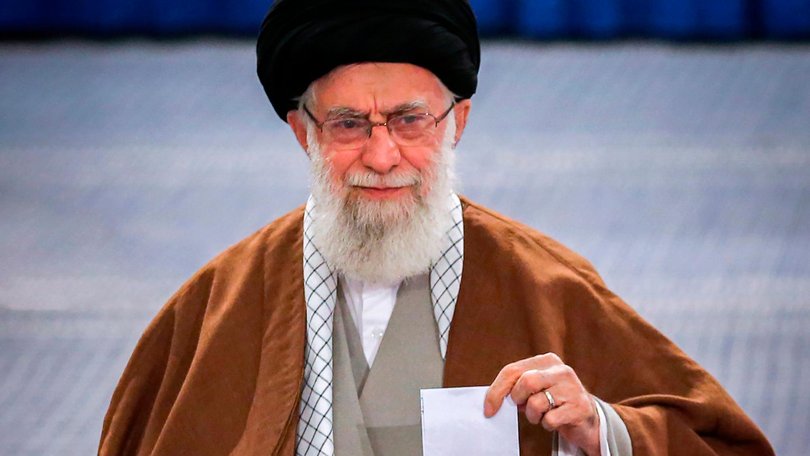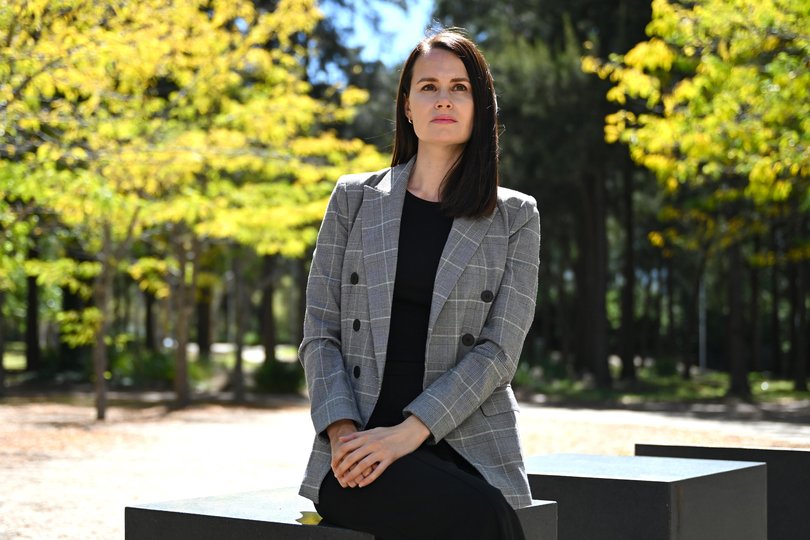A regime change in Iran with no credible alternative would risk road to ruin, expert warns
Rushing to overthrow Iran’s Supreme Leader Ayatollah Ali Khamenei could lead to chaos instead of peace.

One of Australia’s foremost experts on the Middle East has warned the pursuit of regime change in Iran alongside Israel’s attempts to destroy its nuclear program could cause more instability than peace.
“If the regime falls, I think you’re looking at a lot of instability and a lot of chaos, rather than a peaceful and direct kind of transition,” Dr Kylie Moore-Gilbert told The Nightly.
Dr Moore-Gilbert’s note of caution echoed the fears of French President Emmanuel Macron on Tuesday when he also highlighted the potential risk of wider regional destabilisation risks if the country’s authoritarian rulers were forcefully ousted.
Sign up to The Nightly's newsletters.
Get the first look at the digital newspaper, curated daily stories and breaking headlines delivered to your inbox.
By continuing you agree to our Terms and Privacy Policy.The French President pointed to the aftermath of the deposing of Saddam Hussein in Iraq and Muammar Gaddafi in Libya as examples of why violent overthrow was not a good idea. He was later shot down on social media by Donald Trump for suggesting the US president left the G7 summit early to negotiate a ceasefire.
Mr Trump on Wednesday called for Iran’s “unconditional surrender”, stating in another post on Truth Social that the location of Iran’s Supreme Leader Ayatollah Ali Khamenei was known but there was no intention to kill him, “at least not for now”.
As he ordered the first strikes on Friday to cripple Iran’s nuclear and ballistic missiles program and take out its top military officials and nuclear scientists, Israeli Prime Minister Benjamin Netanyahu appealed directly to the Iranian people to unite against the regime.
“As we achieve our objective, we are also clearing the path for you to achieve your freedom,” he said.
“The regime does not know what hit them, or what will hit them. It has never been weaker. This is your opportunity to stand up and let your voices be heard.”
Dr Moore-Gilbert, a political scientist specialising in Islam and the Middle East, said there was no prospect of a public revolt against the state in the short term.
“I don’t think that the Iranian people are going to rise up while the bombs are still falling. They’re taking shelter. They’re evacuating Tehran,” she said.

Dr Moore-Gilbert, who was detained as a political prisoner in Iran in 2018 and served more than two years of a 10-year sentence before being freed in November 2020, said the end of the conflict could lead to a number of unpredictable outcomes.
“It really depends whether they go down fighting, or whether they do negotiate some kind of off ramp with Trump that would leave them in place and would leave Ayatollah Khamenei in power,” she said.
“If that was the case, then you could imagine there could still be an uprising. But all the bad guys still have all the guns in that scenario. So, it’s certainly not a foregone conclusion that the regime would fall.”
Dr Moore-Gilbert argued the Ayatollah may be left in place for the sake of “the better the devil you know.”
Unconfirmed reports emerged in the US press earlier this week that President Trump rejected Israel’s proposal to kill the supreme leader, Ayatollah Ali Khamenei.
“He’s predictable. He’s an elderly man, not in good health … God knows what or who would emerge if he disappeared,” said the Australian academic.
Currently there was “no credible alternative” to the Islamic Republic’s government, she argued, with the caveat that there were a number of individuals in the diaspora who were “highly esteemed” by the population and who could form a transitional council.
But the regime’s opponents were also divided, argued Dr Moore-Gilbert.
There was potential for infighting among the country’s multiple ethnic communities, particularly in provinces where some groups were clamouring for autonomy.
Fears remain that the conflict, now in its sixth day but still contained between Israel and Iran, could escalate across the region if the US decides to join the Israeli military campaign.
“There’s definitely a game of brinkmanship happening behind the scenes over potential negotiations with Iran,” said Dr Moore-Gilbert, arguing that the leaders’ social media outburst masked positioning for a potential sit-down.
The regime was currently in a “situation of disarray” after the elimination of key military figures, including the new wartime chief of staff whose predecessor was killed on Friday, and a string of nuclear scientists with irreplaceable knowledge.
But she argued it would be a challenge to eradicate the nuclear program by military means alone, even if the US gave the green light to using its 30,000-pound “bunker buster”, the only air-delivered bomb capable of destroying the highly protected underground enrichment facility at Fordow.
“It’s going to be very hard for them (Iran) to regroup and rebuild. But that doesn’t mean that they can’t, and as long as they have the know-how and the will to do so they might,” she said.
And while the Iranian people were currently blaming the regime for bringing the current calamity down on their heads, there was a risk of the public rallying behind the flag if there were mass civilian casualties, she added.
Dr Alam Saleh, a senior lecturer in politics and international relations at ANU, who is currently in the Iranian capital Tehran, said that civilians under bombardment were now beginning to feel the country and not the regime was being targeted.
“Up until now, people including myself, felt that the invasion is supposed to stop Iran’s nuclear facilities and activities. But it seems it’s not. It is moving beyond the nuclear facilities, beyond even military centres or bases,” he said.
That fear had been worsened by President Trump’s warning on social media on Tuesday for people to flee the city.
“That definitely concerns the people here in Tehran that this war is not necessarily about the nuclear war, it is about Iran,” he said.
Some who had hoped the military operation could bring about regime change were now in doubt, said Dr Saleh.
“I think they’ve lost their hope that this is necessarily aiming and designated to change the regime,” he said.
“It’s targeting industrial and economic infrastructure . . . which affects the people at the end of day, rather than affecting the regime.”

